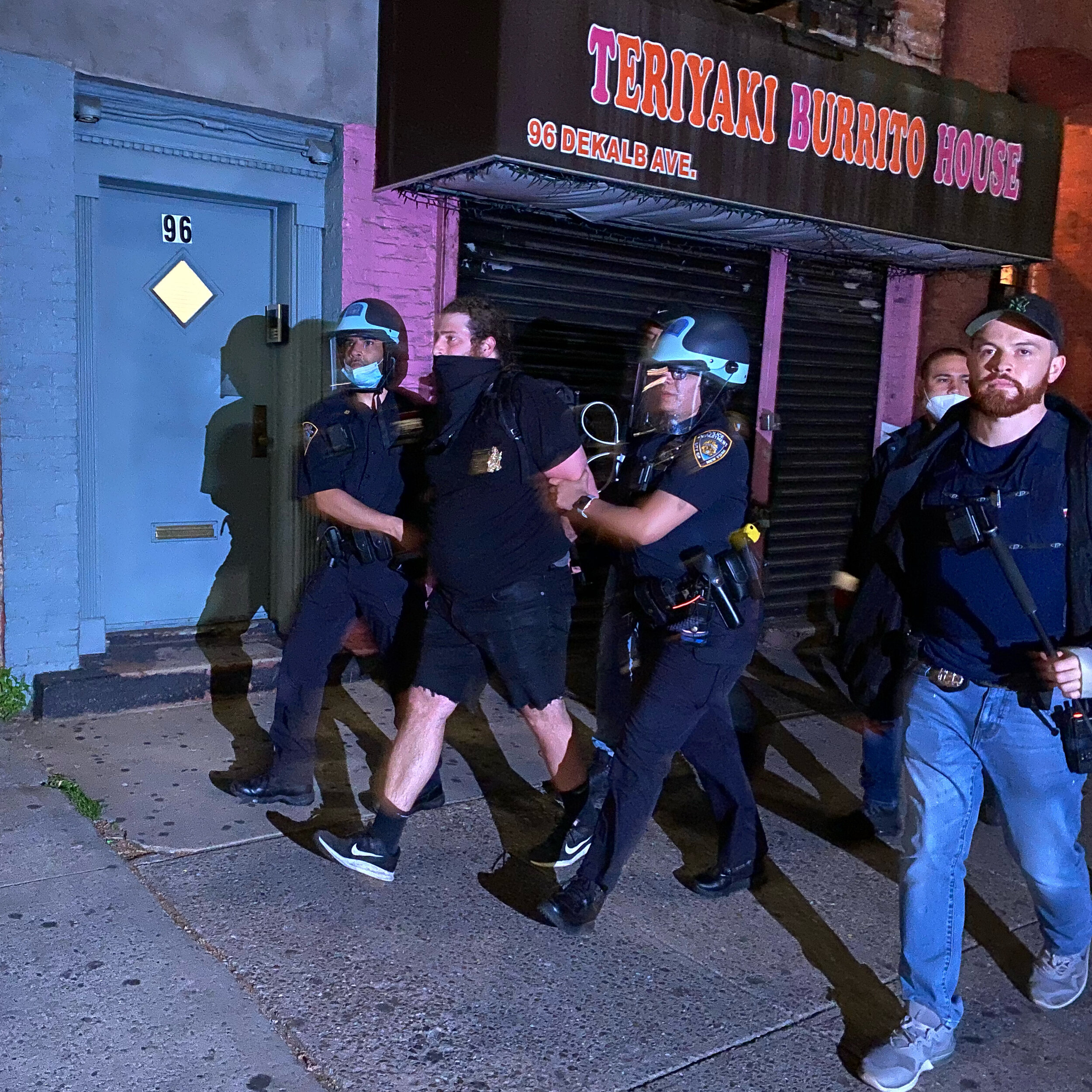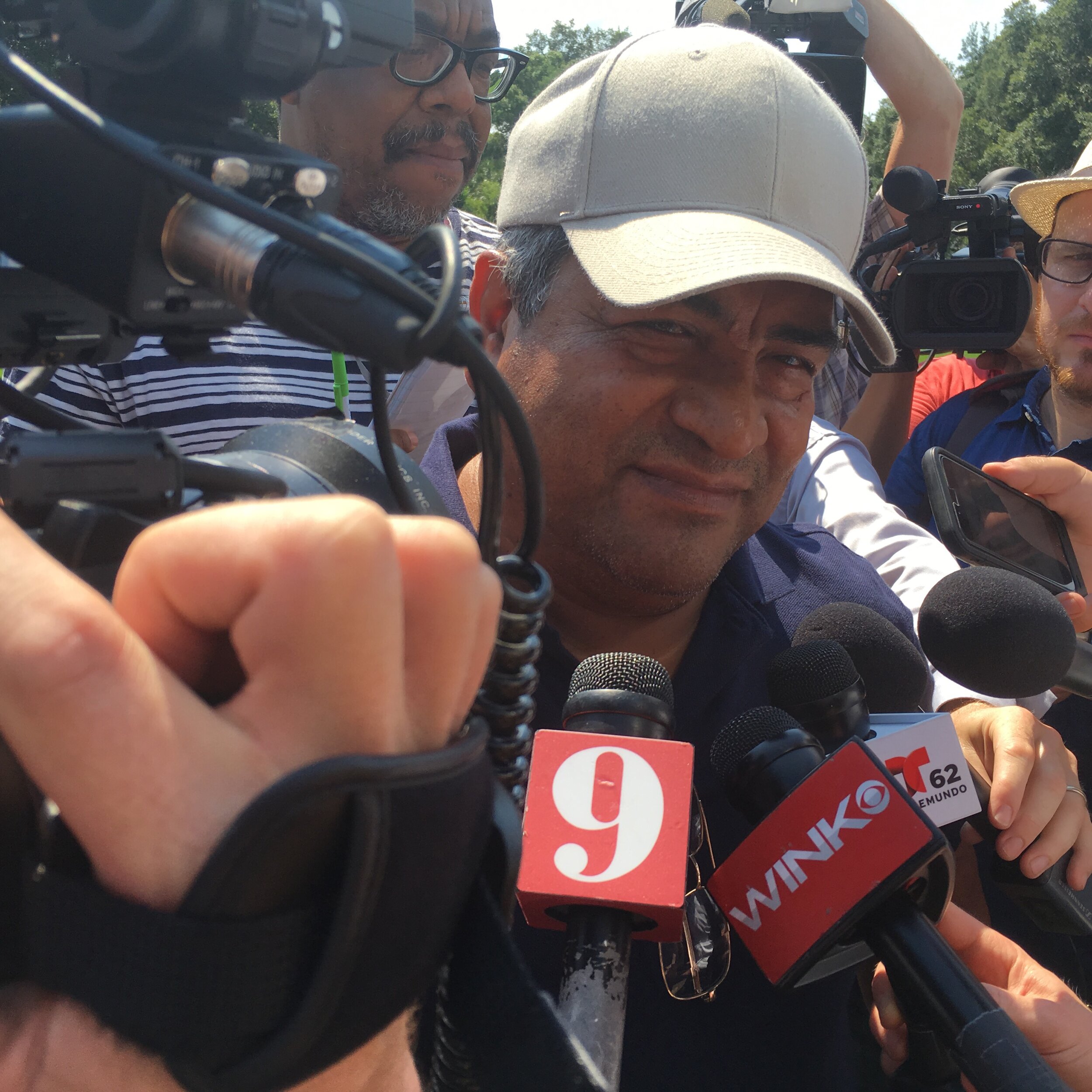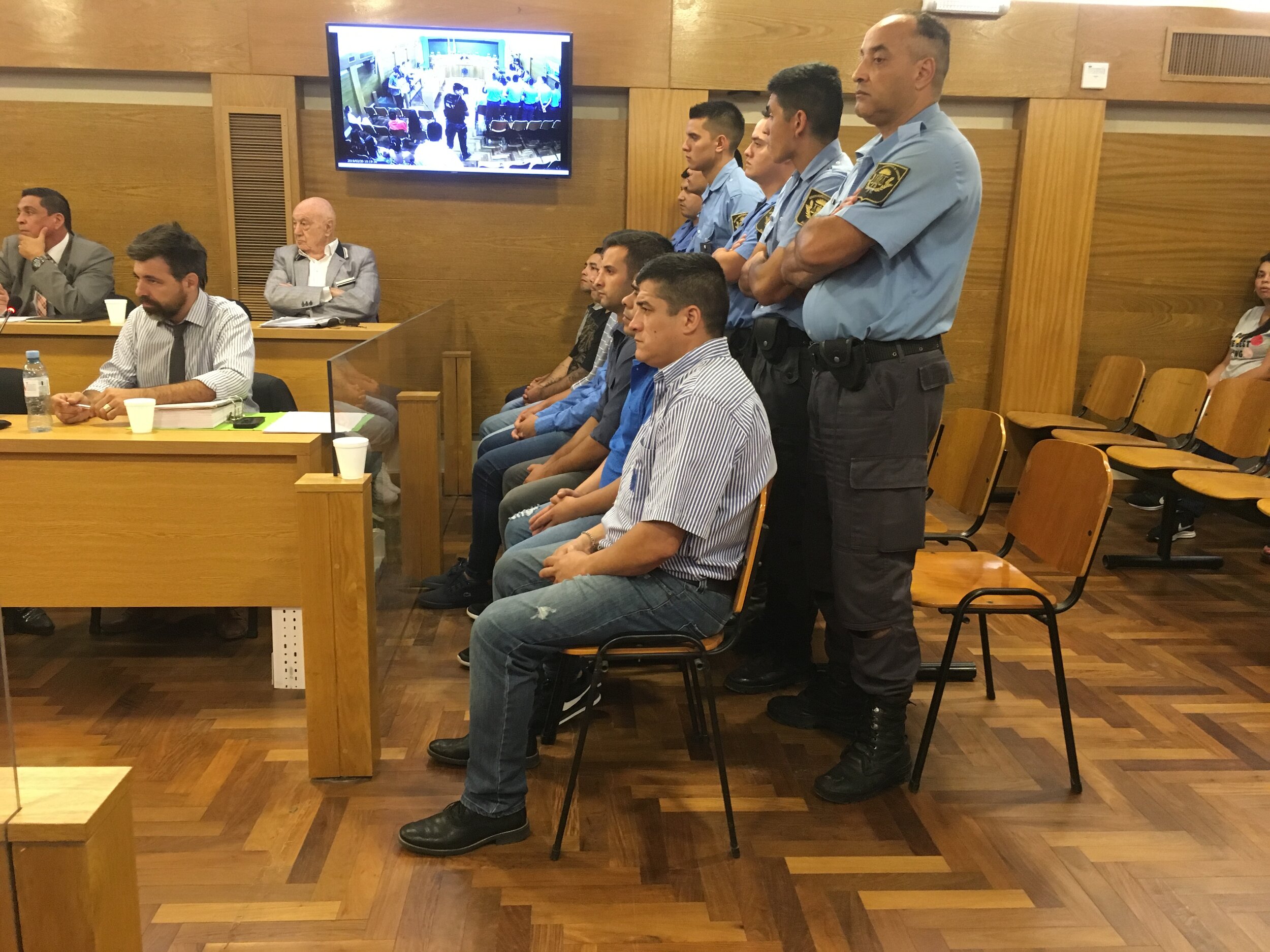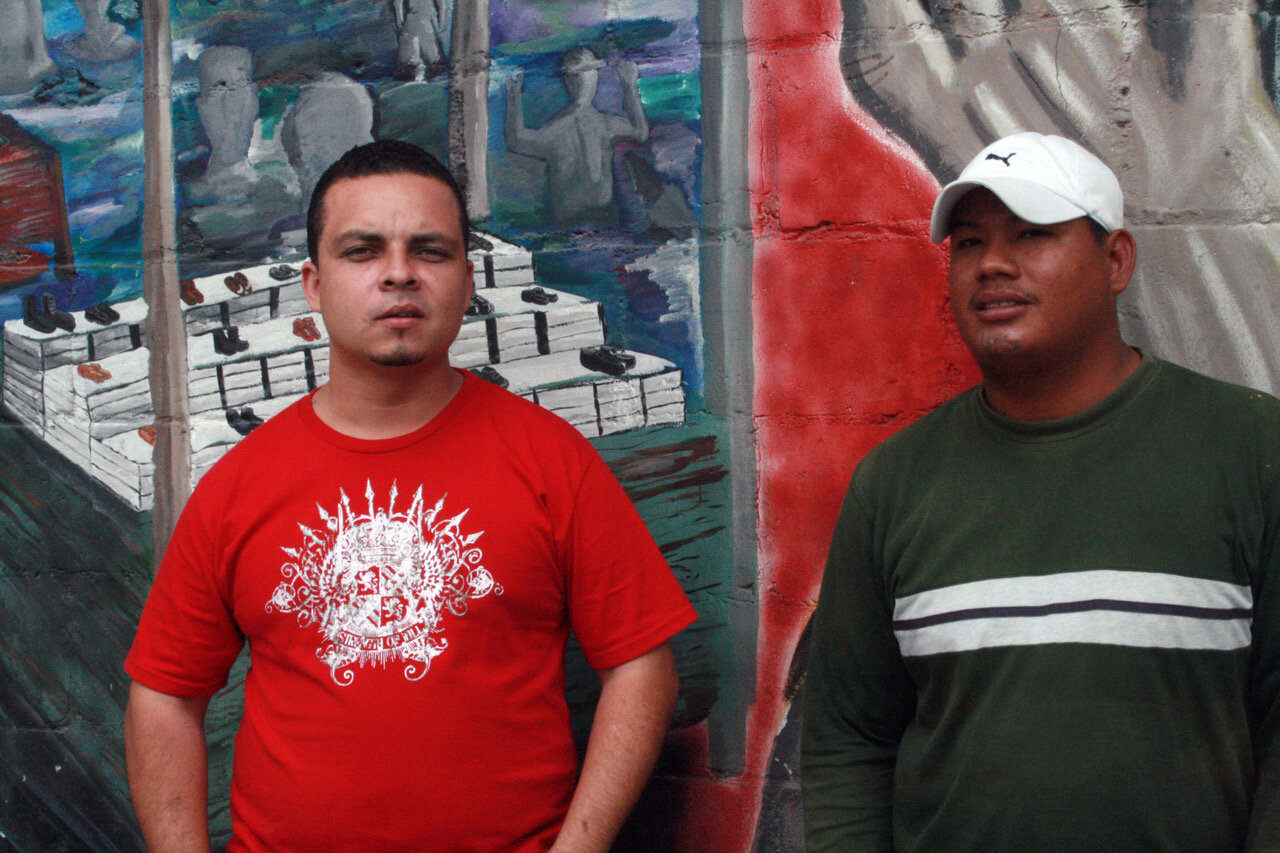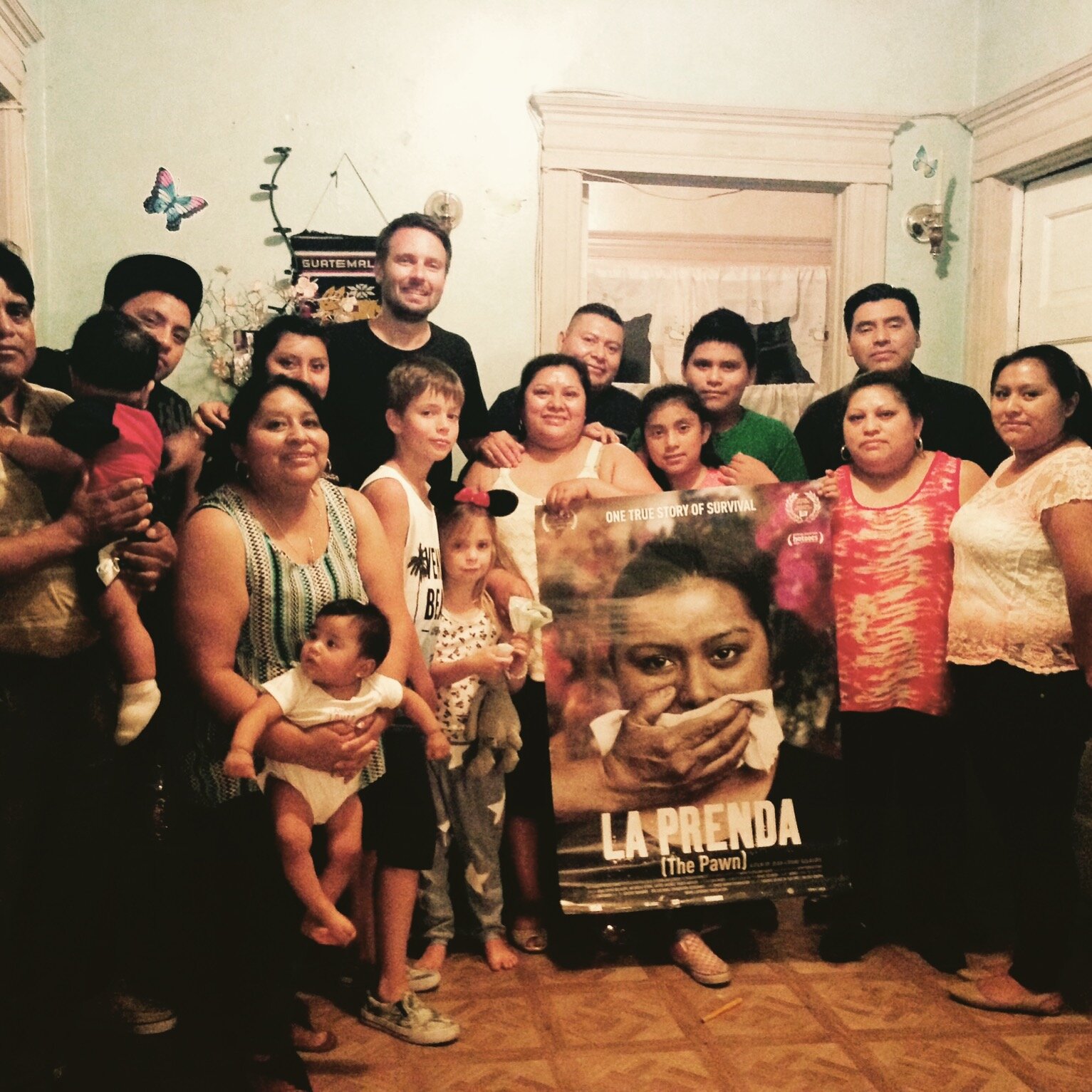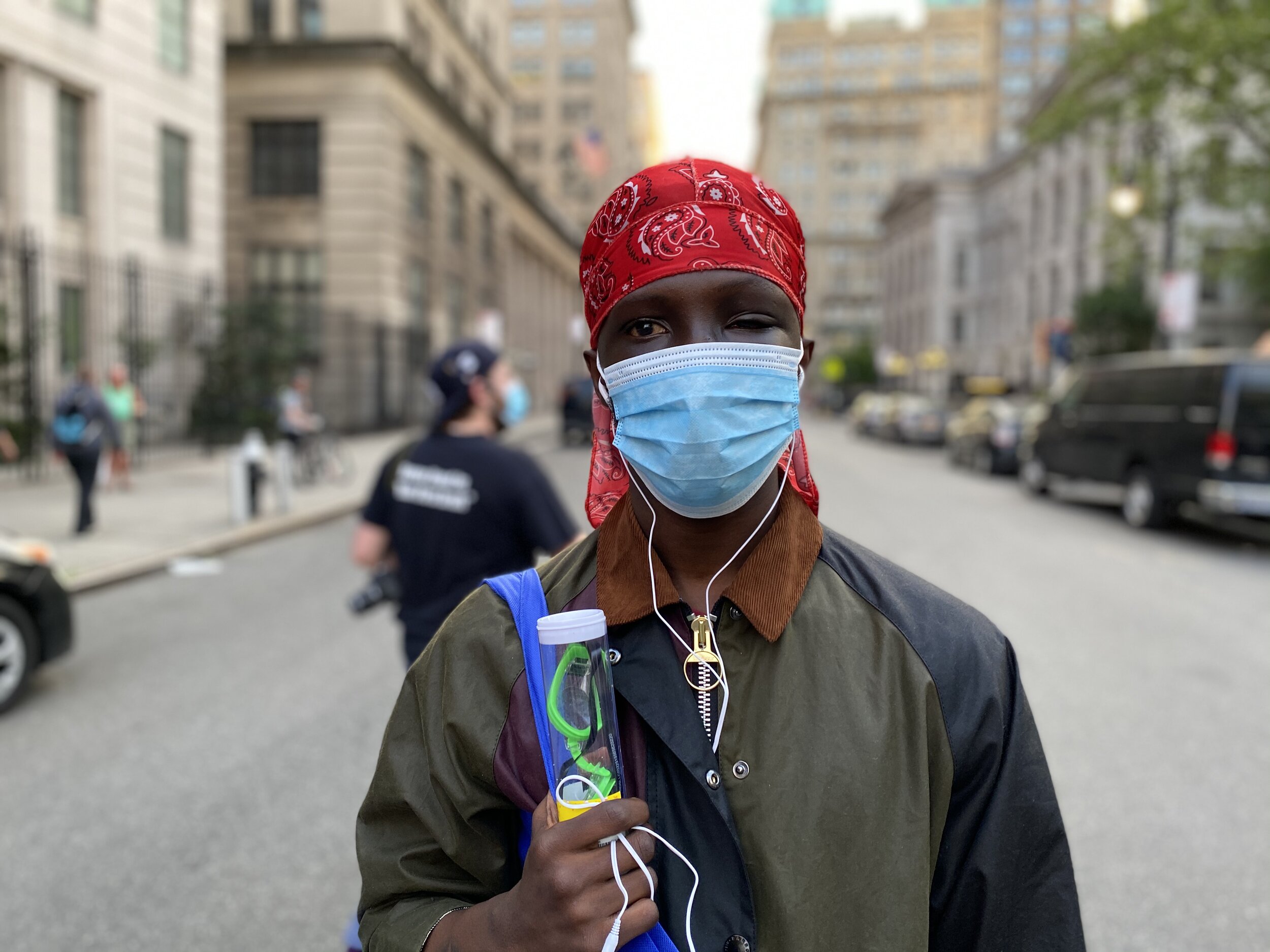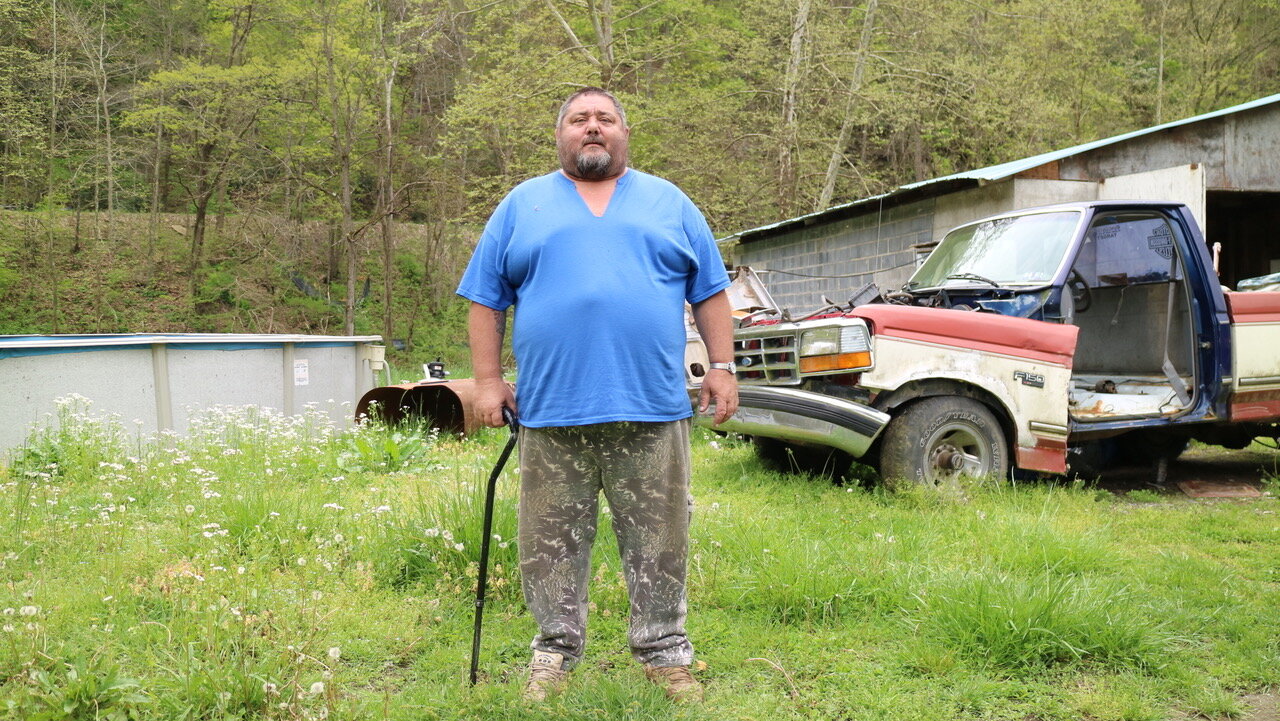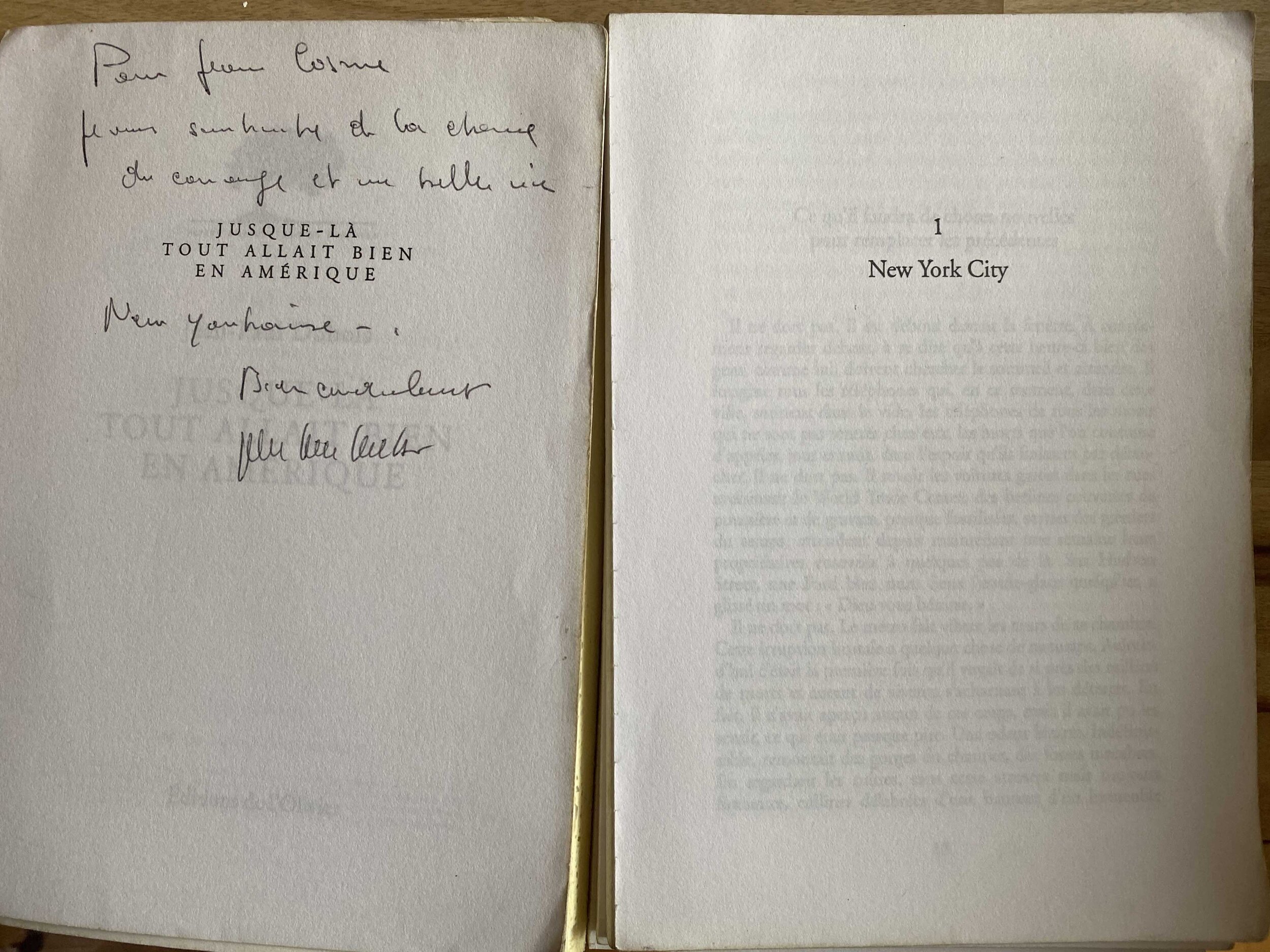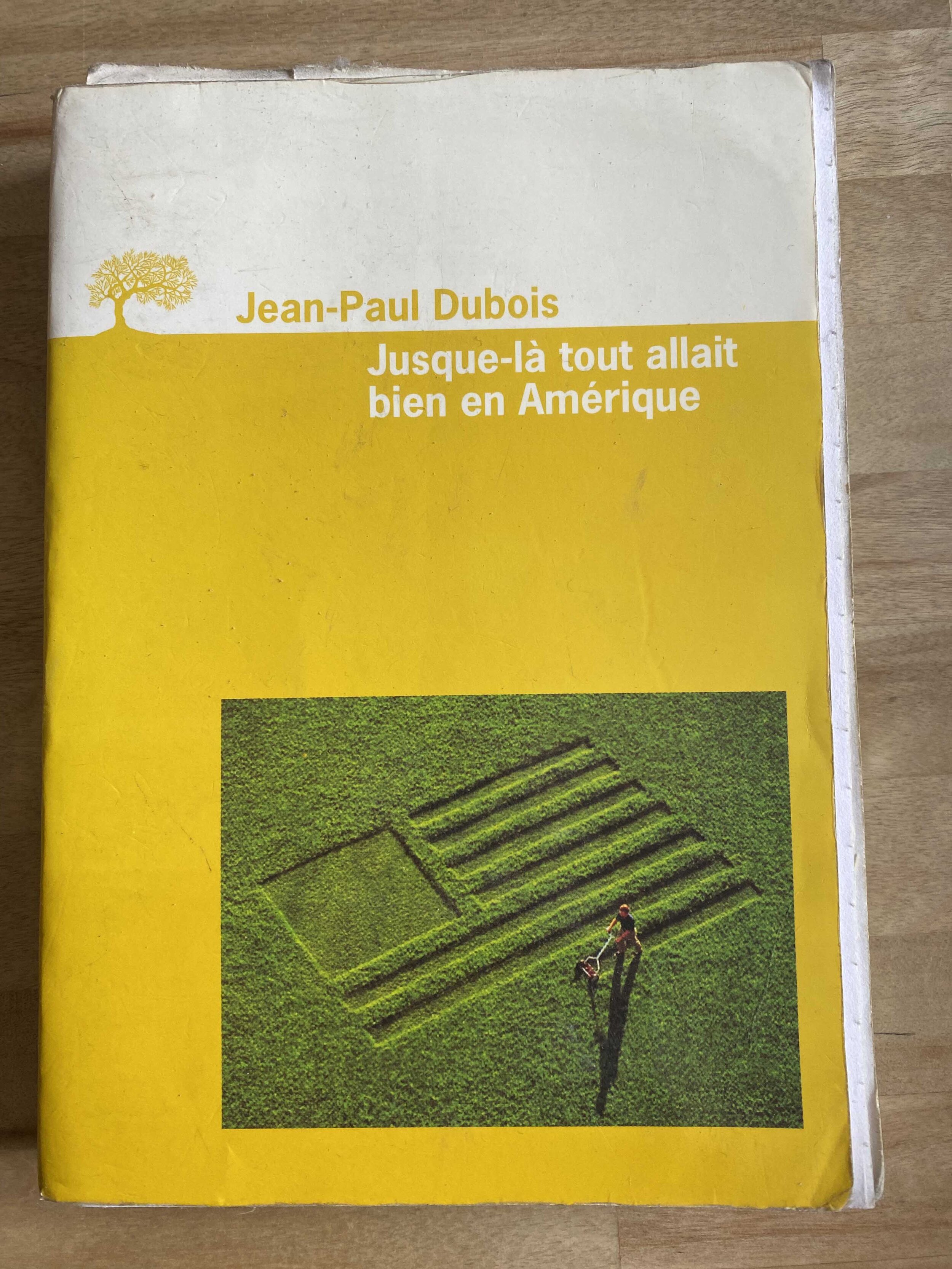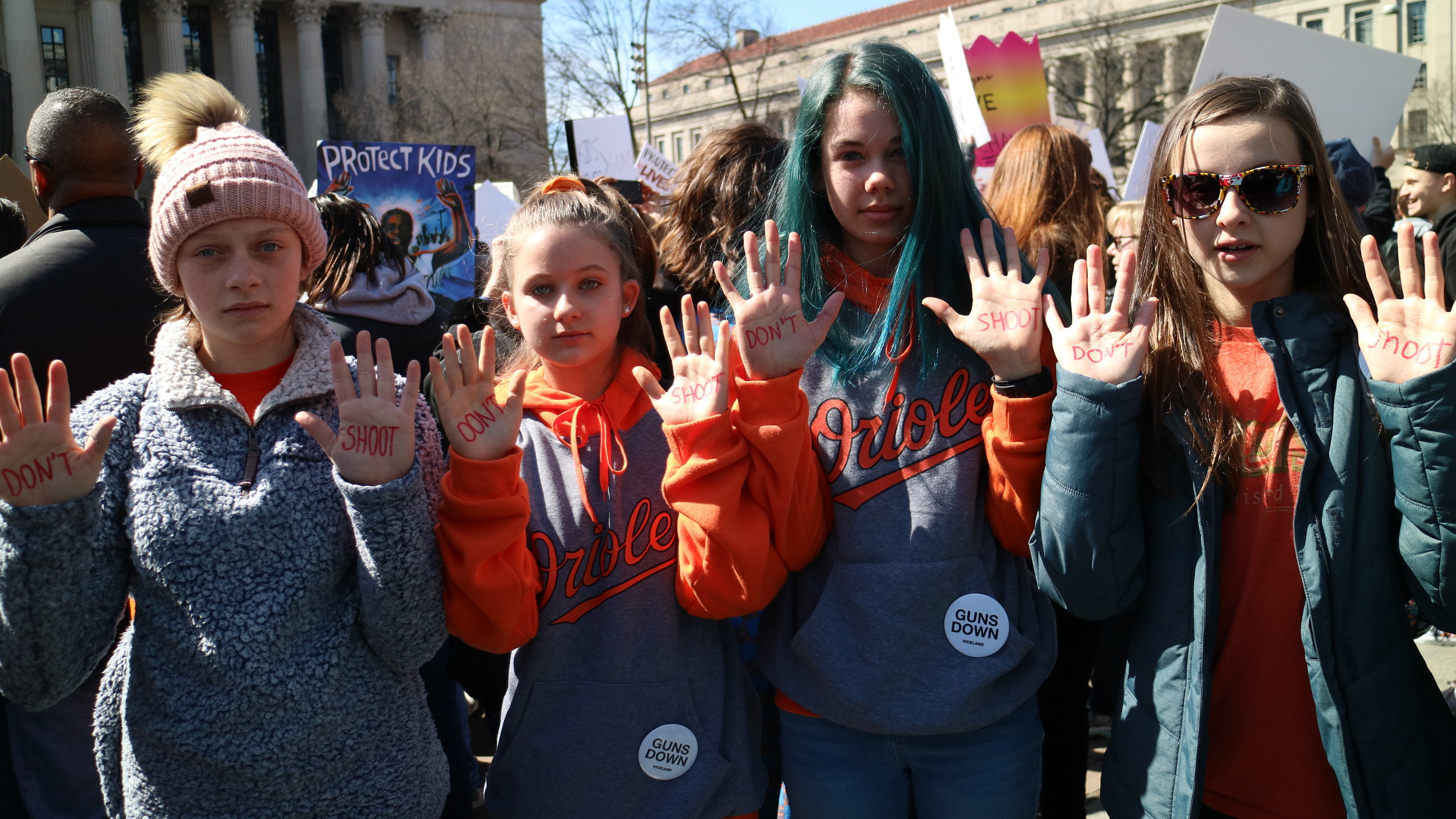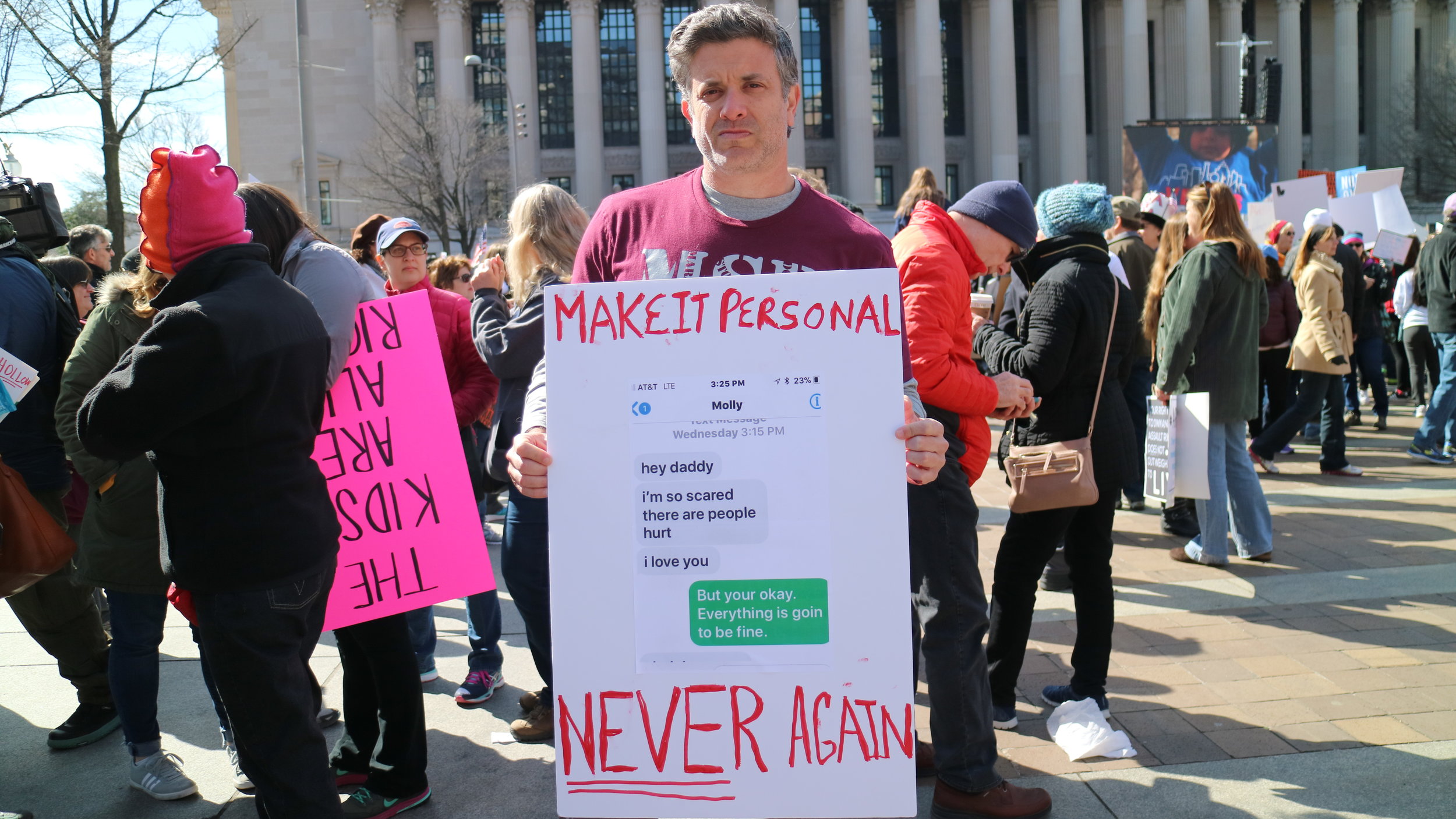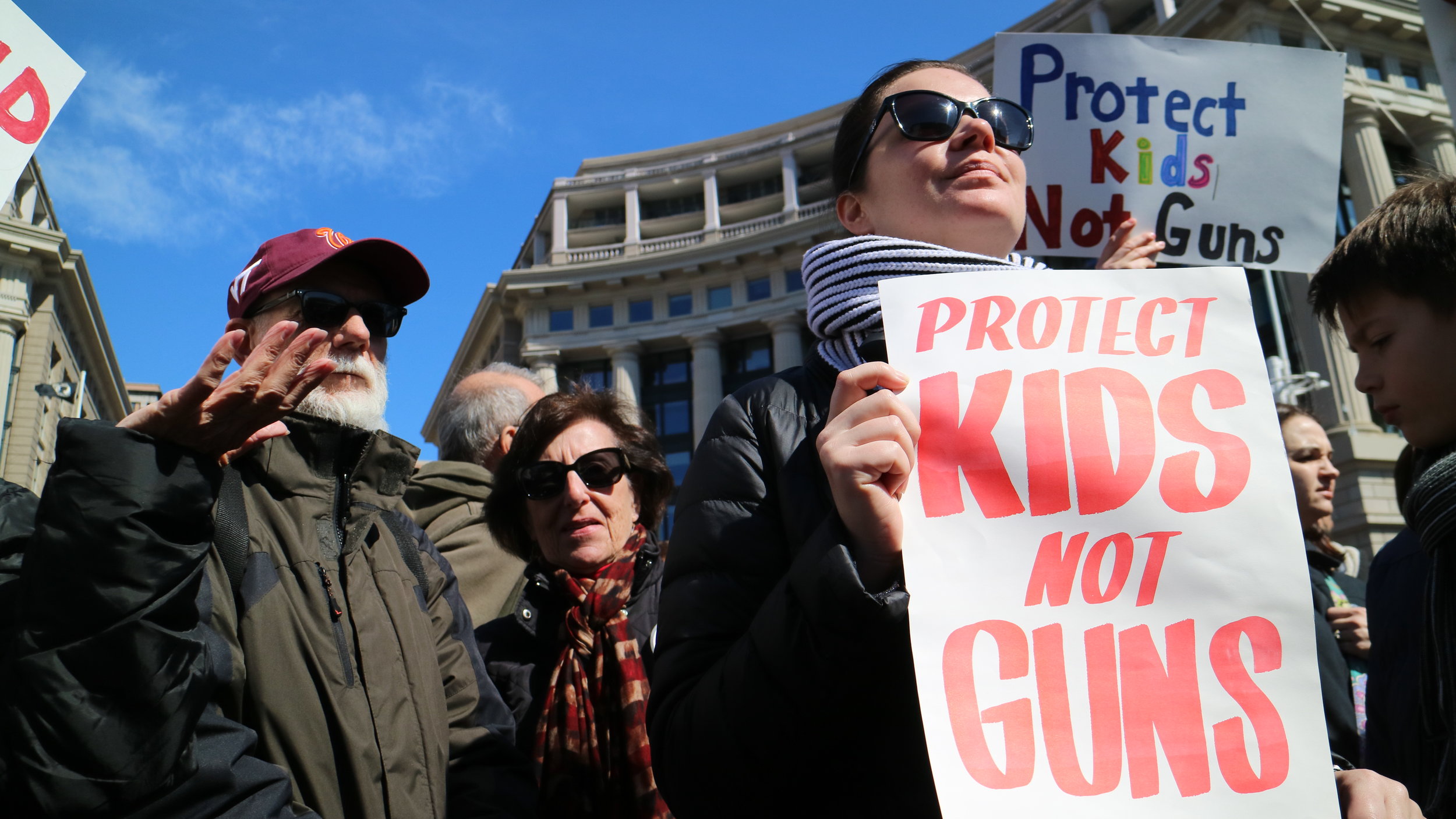Good-bye Tribune de Genève and 24 Heures
I often wondered what my last day working for 24Heures and Tribune de Genève would look like. I know now. The streets of New York City are hot and humid today. Outside my office, construction workers are working on yet another apartment building in downtown Brooklyn, a place that has undergone an tremendous transformation in the 19 years I have lived here.
When I first moved to the City in 2002, the original plan was to stay for 5 years and then head back to Switzerland. But New York adopted me, transformed me, gave me a family and a new career in documentary filmmaking.
This day marks the end of a 22-year career at 24 Heures and La Tribune de Genève, two daily newspapers with which I have never stopped identifying myself since they hired me on August 1, 1999. I still remember the feeling of pride I felt that day when I joined the World News section fresh out of college. Not to mention the happiness I felt when I was named U.S. Correspondent for the two newspapers in 2002.
For the past 19 years, I have been lucky to be able to feel the pulse of America’s “brutal and blind heart” described by Jean-Paul Dubois, the journalist and author whom I have never stopped emulating. When I first arrived in New York in 2002, I was actually carrying in my luggage "Until then, everything was fine in America", a collection of essays that Jean-Paul Dubois had written during his time as a U.S. Correspondent for the French magazine Le Nouvel Observateur. I loved this book and read it so much that it ended up falling apart. And when I took it out this morning to take its picture and write this message, I realized that it had been signed by Dubois with this message for me: “Dear Jean-Cosme, I wish you luck, courage and a beautiful life in New York”.
I needed courage to make it in the City, but I can says that my life in New York is great because I am lucky to have a job I am passionate about. After 22 years at 24 Heures and at the Tribune de Genève, I concluded that it was time for me to turn the page and embark on another path which led me to the Tribeca Film Festival in June for the world premier of my latest film HARLEY.
I am fortunate not to leave alone. The thousands of people I met around the world and interviewed during my career, are leading me onto this new path. In the last story I wrote for 24 Heures and the Tribune de Genève, I was able to track down the bravest journalist I had ever met in Havana. After several stays in Cuban prisons, Roberto Guerra Perez had to flee to the United States, where he unfortunately could not keep working as a journalist. So he reinvented himself as a gardener.
Roberto and so many others like him made me grow both as a journalist and as a person. It is also thanks to them that I had the courage to make this move to keep creating. So to all of you who are interested in working with me, I am constantly looking for new challenges and new collaborations besides my films. So please do not hesitate to reach out.
Au revoir 24 Heures et Tribune de Genève
Je me suis longtemps demandé à quoi ressemblerait mon départ de 24 Heures et de la Tribune de Genève. Aujourd'hui, je le sais. Il se déroule ce 31 août dans la moiteur new-yorkaise, cette ville que j’adore pour m’avoir adopté, donné une famille et élargi mes horizons professionnels en me permettant de me reconvertir dans le film documentaire.
Ce départ vient clore une belle histoire de 22 ans au sein des rédactions de deux quotidiens auxquels je n’ai cessé de m’identifier depuis qu’ils m’ont donné ma chance le 1er août 1999. Je me souviens encore de ma fierté le jour où j’ai été engagé par Gian Pozzy pour rejoindre la rubrique internationale de 24 Heures alors que j’étais encore à la fac. Sans oublier l’excitation en 2002 lorsque j’ai été nommé correspondant aux Etats-Unis pour la Tribune de Genève et 24 Heures par Pierre Ruetschi et Jacques Poget.
Ces deux sentiments m'ont animé jusqu'à aujourd'hui et ont été renforcés au contact de journalistes hors pair avec lesquels j'ai eu la chance de travailler, à commencer par Reto Breiter, Philippe Dumartheray, Nicolas Verdan, Jean Gaud, Jean-François Verdonnet, Jean-Marc Corset, Jean-Philippe Jutzi, Bernard Bridel et Nicolas Willemin qui m'ont accueilli dans les quotidiens à l'époque. Mais il y en a bien d'autres qui se reconnaîtront dans cette expression de gratitude.
Depuis 2002, j’ai eu la chance d’écouter battre le “coeur brutal et aveugle” de cette Amérique qu’a raconté - et raconte toujours - avec tant de talent et d’éloquence Jean-Paul Dubois, le journaliste et auteur que je n’ai cessé d’émuler. A mon arrivée à New York en 2002, j’avais d'ailleurs dans mes bagages “Jusque-là, tout allait bien en Amérique”, un recueil qu’avait écrit Jean-Paul Dubois pendant sa correspondance aux Etats-Unis pour Le Nouvel Observateur. J’ai tellement lu et adoré ce livre que m’avait offert mes parents, qu’il a fini par ses désintégrer. Les pages se sont mises à voler et tomber, mais le livre est toujours là. Et quand je l’ai pris ce matin pour le photographier et écrire ce message, j’ai réalisé qu’il m'était dédicacé par Dubois en ces termes: “Cher Jean-Cosme, je vous souhaite de la chance, du courage et une belle vie new-yorkaise”.
Il m'a fallu du courage pour dompter cette ville depuis 2002, mais ma vie new-yorkaise est belle car j’ai de la chance de pouvoir exercer le métier qui me passionne. Après 22 ans à 24 Heures et à la Tribune de Genève, j’ai conclu qu’il était temps pour moi de tourner la page et de vivre cette passion ailleurs en m’engageant sur une autre voie qui m’a notamment mené en juin sur la scène du Festival de Tribeca avec mon nouveau film HARLEY.
J’ai la chance de ne pas partir seul. Les milliers de personnes que j’ai pu rencontrer à travers le monde et d’interviewer au cours de ma carrière, m’accompagnent et me portent vers ces nouveaux horizons. Pour mon dernier article pour 24 Heures et la Tribune de Genève, j’ai retrouvé le journaliste le plus courageux que j’ai rencontré au cours de ma carrière. Son nom: Roberto Guerra Perez. Après des séjours dans les prisons cubaines, Roberto a dû se résoudre à fuir son pays pour les Etats-Unis. Dans l’incapacité de pouvoir poursuivre son activité de journaliste, il s’est réinventé en pépiniériste.
Roberto et tant d’autres comme lui ont donné aux lecteurs de 24 Heures et de la Tribune de Genève une fenêtre sur le monde qui les entoure. Et ils m’ont fait grandir tant au niveau journalistique que personnel. C’est aussi grâce à eux que j’ai pu avoir le courage de faire ce saut dans l'inconnu pour continuer à créer. A tous ceux d’entre vous qui ont lu ce message jusqu’au bout et qui sont intéressés à collaborer avec moi, sachez que je suis constamment à la recherche de nouveaux défis et de nouvelles collaborations en marge de mes films. N’hésitez donc pas à me contacter.
Je vous laisse avec quelques photos marquantes de ma carrière à 24 Heures et la Tribune de Genève. Have a good day y’all.
Meet Dolores, a Guatemalan mom who was separated from her 2 daughters in the U.S.
Dolores and her children in Texas.
Dolores Suy Ramos vividly remembers the day she was separated from her two daughters, Candelaria, 12 years old, and Yashmi Mileydi, 3 years old, by the U.S. authorities. It happened on June 5, 2018 in Dalhart, a small rural town in Northern Texas. "They arrested and jailed me," said the 28-year-old Guatemalan mother, who used to live in the U.S as an undocumented immigrant. "When they deported me a year later, I asked to see my daughters, but they told me I wasn't allowed to."
Dolores used to live in this trailer in Dalhart, Texas. Jean-Cosme Delaloye
This mother’s quest to be reunited with her two children looks like a lost cause. Dolores doesn't know where to search or whom to talk to. She now lives alone in a remote valley in rural Guatemala far from the country’s capital. In this remote region, Internet connection remains a luxury Dolores simply cannot afford. And since Candelaria and Yashmi Mileydi were separated from her, she has never been able to communicate with her two young daughters, who are now living with a foster family in Texas and who could be adopted out .
Dolores’ children are now considered abandoned by their mother in the U.S.. "I never abandoned them and I never signed any document to authorize their adoption", Dolores claimed raising her voice. “I need my daughters and they need the love that only their mom can give them. But I don't know where they are or how they're doing today. "
The children were temporarily housed in this villa in Lubbock, Texas.
“I need my daughters and they need the love that only their mom can give them. But I don’t know where they are or how they’re doing today. ”
Candelaria and Yashmi Mileydi are among the thousands of children separated from their migrant parents by the Trump administration since 2017. The policy was intended to deter illegal immigrants to try to cross the border into the United States. It consisted not only of separating families who were arrested at the border with Mexico. It also did not spare families of undocumented migrants like the family of Dolores who were already living in the United States.
U.S. President Joe Biden signed an executive action on February 2 2021 to create a task force, whose goal is to try to reunite these families. But this endeavor will surely prove to be extremely difficult. Dolores is one of hundreds of parents deported to Central America without their children and who are now completely invisible to the Biden administration.
Dolores now lives in this remote valley near Joyabaj in Guatemala. Jean-Cosme Delaloye
Furthermore, the time that that went by since the separations threatens to create another trauma for the children placed with their own family members living in the United States or with foster families. "I'm afraid Candelaria, the older one, now thinks I gave her up," Dolores said. “When the judge sentenced me, he told me that I no longer had custody of my children, but that they would have a good life in the United States. I doubt it, because when she was with me, Candelaria was chubby. In the last picture I saw of her, I found her skinny. "
The story of Dolores was published on February 3, 2021, in the Swiss daily newspaper 24 Heures.
Dolores still has siblings in Texas who are now her only source of information about her children. “The last time I spoke to my younger sister in November, she told me that Candelaria and Yashmi had not been adopted yet, but that's all I know,” she said, sounding anxious.
“Can you help me get my children back?”
In this race against the clock to try to get her daughters back, Dolores learned to accept the silence of the American and Guatemalan authorities in the face of her requests. She even got used to the idea of permanently losing custody of her youngest daughter, who was born in the United States. "Yashmi is a U.S. citizen and I don't think I'll be able to get her back," she said sounding sad. “But Candelaria was born in Guatemala. She therefore has the right to come back here. ” After about 20 minutes, the phone conversation, which kept being interrupted by connection issues, ended with this heart-wrenching question from Dolores: "Can you help me get my children back?"
The original story was published in French on February 3, 2021, in the Swiss daily newspapers 24 Heures and Tribune de Genève.
The end of the Trump presidency exposed in Playboy
Brian Karem in front of the White House.
Brian Karem, the “loud mouth” White House correspondent for Playboy magazine, has been chronicling America’s divorce from Donald Trump. 24 Heures spoke with him.
New York / Jean-Cosme Delaloye
For once, Brian Karem didn’t need to shout his question to Donald Trump on September 23, 2020. That day, the Playboy White House Correspondent, who is normally relegated to the back of the press room, was not ignored by the President of the United States. Quite to the contrary. He even got the privilege to ask the first question of the briefing. "Win, lose or draw in this election, will you commit here today for a peaceful transferal of power after the election?”, he asked.
Donald Trump didn’t hesitate. ”Well, we’re going to have to see what happens," the president replied. “You know that. I have been complaining very strongly about the ballots, and the ballots are a disaster.” Brian Karem followed up. The response he received from the president that day, 6 weeks before the November 3 election, previewed Donald Trump’s current strategy to try to hold onto power after losing to Joe Biden: "Get rid of the ballots and you’ll have a very peaceful… There won’t be a transfer frankly, there will be a continuation”, the president told him.
“This is the first president we have ever had who doesn’t give a shit about democracy.”
Two months after this exchange, Brian Karem still can’t believe Donald Trump tripped on such a “softball question”. “Let's face it. If I ask you as a president of the United States whether he will agree to a peaceful transfer of power, that shouldn't be a difficult question”, Karem said. “With Donald Trump, you have to try to keep it very basic, but he even finds those questions tough because he has got no answers”.
In his latest Playboy column, Brian Karem writes he is “tired" of the spectacle of a president still trying to overturn the result of the November 3 election. But the reporter is convinced that the relationship between America and Donald Trump will be terminated on January 20, 2021, on the day Joe Biden becomes the 46th President of the United States. “Donald Trump lost, so he is ultimately going to pay the price and he will be gone”, Karem said. “I know that he doesn't think he will be gone but he will be gone and once he is, we are all going to be a lot better off honestly.”
The journalist has been covering the White House since Ronald Reagan in the early 1980s. He witnessed several presidencies coming to an end, but none like Donald Trump’s. "This is the first president we have ever had who doesn't give a shit about democracy”, Karem said. “He only cares about himself and that is the difference. He's a narcissist. He's a fascist. He's a danger to himself and to others. I think he is mentally ill and I will never be so happy to see somebody go as this guy."
These words from the 59 year-old journalist may come as a surprise. Brian Karem writes for a magazine that helped build the myth a billionaire playboy Donald Trump craves. The president may well have hoisted up a Bible in front of boarded up Washington church on June 1, 2020 after a crowd of peaceful protesters against police brutality had been tear-gassed to clear the way out for him. Donald Trump takes his pride from the fact that he is one of the few men who have been featured on the cover of Playboy.
The story on Brian Karem in 24 Heures.
During his first campaign for the White House in 2016, the businessman often signed his March 1990 Playboy cover with Playmate Brandi Brandt for his supporters. ”I guess we are saying “mea culpa," Karem said while describing the Trump presidency as anything but glamorous. “When my kids were about seven or eight years old, they acted a lot like Donald Trump”, he added. “They were like they wanted what they wanted when they wanted it. They acted like it was the only thing that mattered at that moment. Trump never got past that. So I feel like I've been a an angry parent in the press room for the last four years. It will be nice to deal with adults again”.
Brian Karem’s take on the Trump administration is not much better. “The people that work for Donald Trump are as delusional, if not more so than he is”, he added. “So dealing with his administration is like dealing with a bunch of children in a kindergarten class”.
The reporter’s heated exchanges with the president punctuated a year 2020 marked by the pandemic. When Donald Trump claimed in February that the coronavirus would magically disappear, he was responding to the Playboy correspondent. On August 19, Brian Karem shouted another question to Donald Trump, asking him whether he had any "regrets" about the tens of thousands of Americans who had died from Covid-19.
His question remained unanswered, but Brian Karem had played his role as a disrupter. “I would submit to you that Donald Trump loves running for office and hates governing and I thought he did as little governing in his four years as president as any man has ever done”, Karem said. “If you look at it objectively, out of the four years that Donald Trump has been in office, he spent almost an entire year on the golf course. He is dedicated to stirring up his base. He is dedicated to his rallies. He is dedicated to tweeting. He is dedicated to making fun of everyone who disagrees with him and threatening them. But he is really bad at governing”.
Brian Karem has been trying to educate Donald Trump’s supporters in his own way. “They think he cares about them, but they don't know,” he explained. “Ignorance has always been an undercurrent in American society and this idea that democracy means that my ignorant opinion equals your informed opinion. (…) Trump has played to that because he does the same thing and people see themselves in him. And so they like him. The only way to defeat him is through education. You've got to sit down in a room and listen to them and talk cogently to them”.
As Donald Trump keeps feeding his base with unfounded accusations of electoral fraud, the task is not easy. And Brian Karem's methods are praised as much as they are criticized. “ As my mentor Helen Thomas [Editor’s note: the longtime White House correspondent who died in 2013 at the age of 92] told me: “if you're looking to make friends don't become a reporter”, Karem said. “I didn't join the ranks of reporting to become everybody's best friend”.
Brian Karem also learned another important lesson from Helen Thomas. “She always told me, “Look, it doesn’t matter what the answer is”, he went on. “It doesn't matter if it is answered or not. Just ask the question, that way they can't deny that the issue has been brought before them”.
On Friday, Brian Karem took advantage of one of Donald Trump's rare public appearance since he lost the November 3 election, to shout another question to him: "Mr. President, you have lost the election! When will you admit you lost the election? " Donald Trump left the room without a word and without looking at him. But the president’s silence gave the reporter the answer he was looking for that day.
Featured in Twilight Talks on CUNY TV
On Tuesday March 26, 2019, I was interviewed by Kevin Moore for his talk show Twilight Talks on CUNY TV. We discussed the kind of documentary films I do, the role of a journalist dealing with a tragedy, the current administration, etc. I hope you will be able to check it out here.
Tears and prayers are not enough - Editorial
Here is my latest editorial for the Tribune de Genève on the March for our Lives in Washington D.C. It went with this story. In Washington, I was fortunate to meet with Jason Kaplan, the father of twin girls who survived the Parkland shooting. Molly and her sister Rebecca were hiding in a closet during the shooting. They emailed their dad to tell him how scared they were. Jason came from Parkland, FL, to Washington D.C. last Saturday to say that he wanted change.
Historic March for our Lives in Washington DC
Here is my story on the historic March for our Lives in Washington DC today. It ran in the Swiss newspapers 24 Heures and Tribune de Genève.
Covering Irma
Irma is gone. I am sitting in a cool airport lounge after 4 days without power and 3 without running water. Every time a hurricane hits, you realize how fragile US cities really are. The neighborhood where I was staying was flooded as it was next to the Intercoastal Waterway. We lost power 24 hours before Irma even hit Miami and Internet went out quickly after the win gusts starting punching the city hard. Staying outside was almost impossible. And inside, you could feel the building shaking. As I was outside, I met Andre, a homeless man who was trying to find shelter. Hi face was tatted and you could see in his tired eyes that he had a long and complicated story. When I asked him why he hadn't gone to a shelter, he responded: "The police is not my family". I am wondering whether his family even knew where he was or whether this man had any ties outside his homeless word which seemed to comprise only a few blocks of Biscayne Boulevard. I saw him after the storm walking up and down Biscayne Boulevard. As people were looking for gas, cold water or hot food in powerless Miami, Andre was looking for a cigarette. He had made it past the storm. No it was all about facing the prospect of making it past another day on the streets of Miami.
Blog:
Find the latest news about Jean-Cosme’s films, as well as behind the scenes stories.



